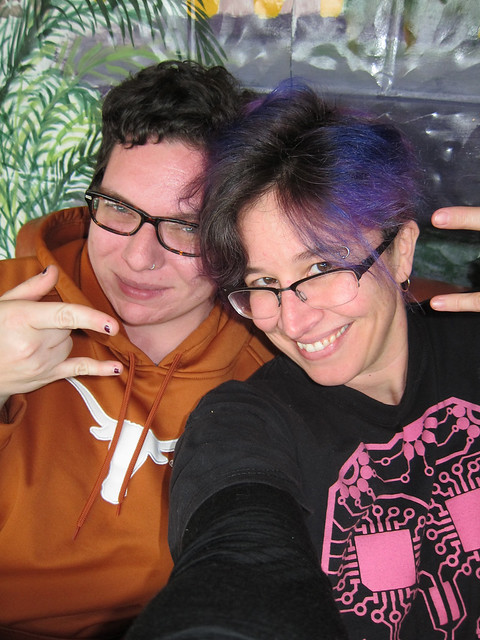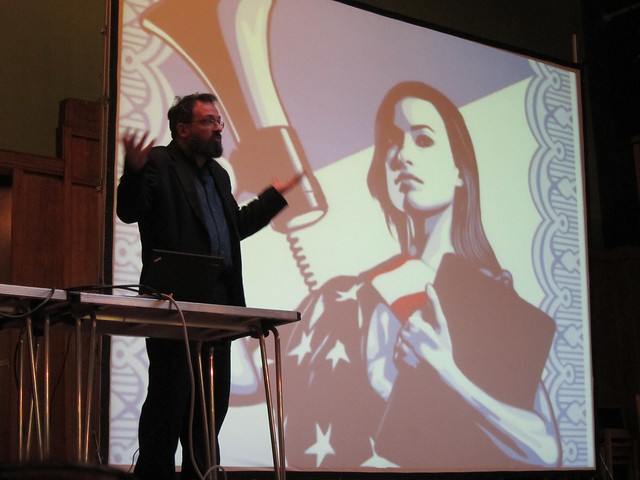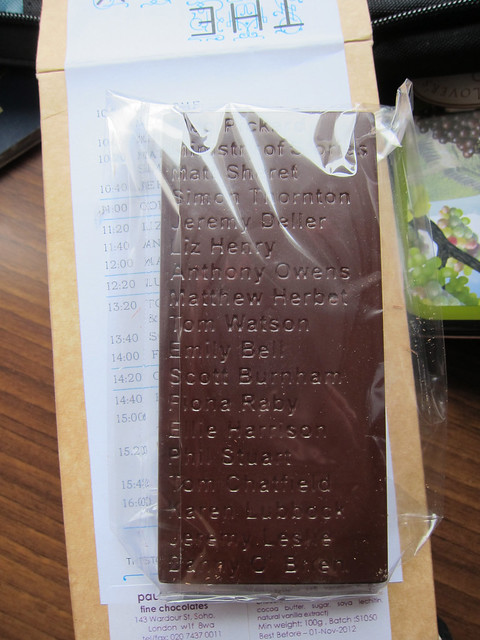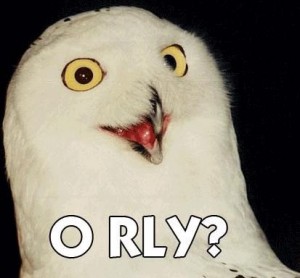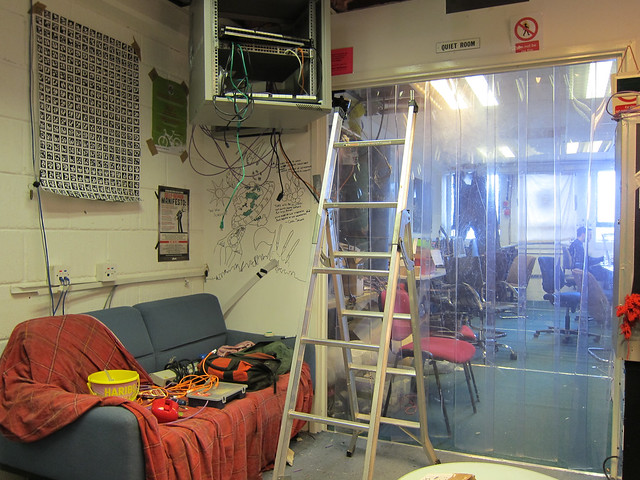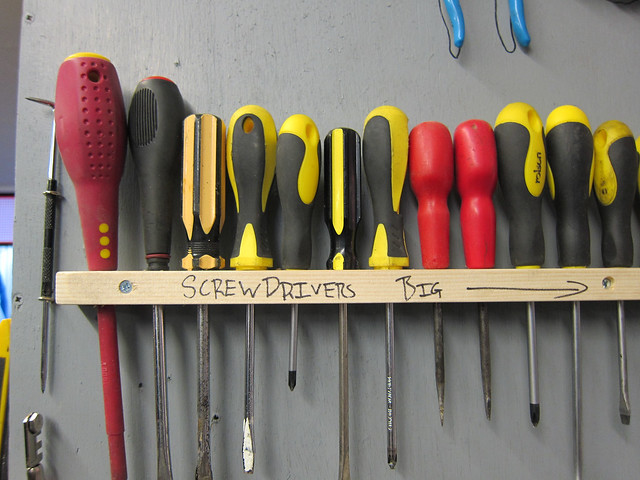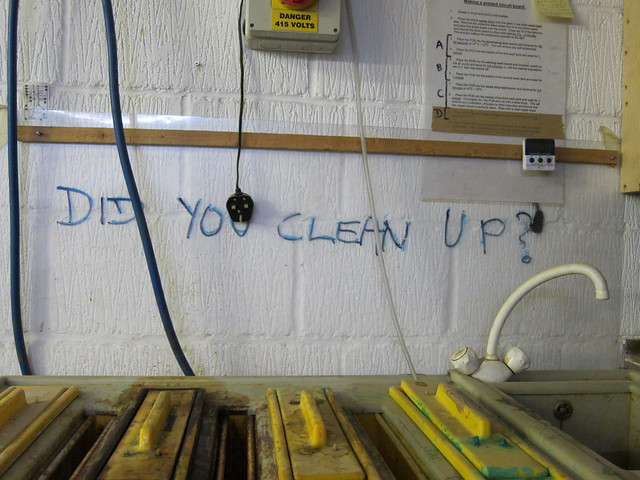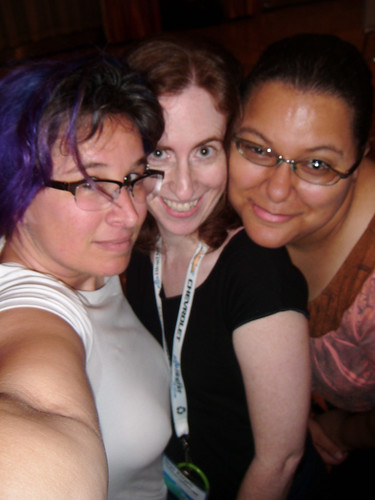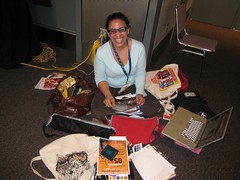Hackmeet was amazing yesterday and after a bit more rest I’ll be heading out to catch the last half of day 2 of this activist & tech unconference. Over the last few months I ended up at some of the hackmeet organizing meetings and agreed to give a talk on whatever they thought might be useful. I couldn’t tell who the audience was though as the schedule evolved. Cypherpunks? Security researchers? Data liberation nerds? Activists who need help making web sites and having https (and its problems) explained or who want to make mobile apps? The sort of people who are kind of activists but a bit more like people in nonprofits who barely use the net at all except to get people to sign a petition? WHAT. Seriously I could not tell. It turned out to be a kind of wild mix of all that and more with what I think was a fair bit of crossover from #OccupySF and #OccupyOakland.
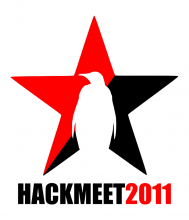
I listened to part of the Electronic Civil Disobedience and Hacktivism talk by a guy named wrought, which started out trying to root online activism in earlier civil disobedience heroes (all male: Thoreau, Gandhi…) As a history lesson I thought it was a condescending and oversimplified bid for legitimacy, but, okay. And then I got so annoyed by the pedagogical technique that I hate, repeated asking “And who here knows what X is, who This person is, raise hand, reply from audience?” It does not work well for me in a classroom when I’m a teacher or a student because it does horrible things to power dynamics; and it really is out of place in a meeting of anarchist activists! (Hello, let’s do it alanya to alanya style or not at all!) Again, okay, whatever! Maybe it works for some people! I voted with my wheels (exhausted, sick, and cranky) and went to hang out on the other side of the space for a while.
The second talk I went to was a discussion on Technology and Privilege. It was really run like a discussion, which was great. Chairs were rearranged in a circle and was run by a beardy guy named Flatline, in all black except for his hot pink chucks. There was a quick round the circle name-only introduction. Flatline asked if anyone had felt that their access to technology was affected by privilege. I can’t remember the original question in detail, but people responded with some thoughts about how they were conscious that their owning a computer or having access to one was because of their class background and sometimes gender (especially in the case of having access to computers in childhood — or not. ) Nothing hideously faily was said that I can recall. We were all 30 or 40 of us on the same page with this. I wondered how many people had read Restructure’s post about gender and computer access?
A K-12 educator talked about kids’ access to computers and how it was controlled and policed. I mentioned gender and class in relation to privacy, that it is important to keep in mind when you make tools for people’s use that they may have access to a computer but it is not under their control or accessible in a private place. We touched on accessibility and disability, screen readers, other things than considering screen readers when making web sites or distributing information. Mike Kan brought up different learning styles and needing the visual and GUI aspects to information and hating the command line. The discussion moved on to race, ethnicity, culture, country, infrastructure. Someone who did a bunch of activism in something called tao.ca (early — not gonna be much trace of it in history on the web) talked about having email or not in the early 90s and what a privilege marker it was; people stopped asking the question in the late 90s and assumed “everyone has email now.” She also had a good story about how, to have root on their boxes you would have to take on a woman (I think) as your apprentice and teach her how to do everything you could do, although no one really liked the word “apprentice”. I asked a bit suspiciously if the women ever stopped being apprentices. Yes! They did. This sounded like a very good model for increasing gender equity or equalizing power and access to tools across other lines of identity.
I liked this discussion. I wish I had remembered to mention bettastop.net, a cool project for bus riders in Oakland (and maybe the whole Bay Area) to report bus ride data over SMS.
Afterwards Rae and I and some other women were like, OMG… usually we want to shoot ourselves in the head during these sorts of discussions, but we didn’t! Surprise Non-Fail! We expected it to be super faily, and then it wasn’t! (Strangely all our metaphors about hating and not wanting to go to those privilege discussions were about violence towards ourselves. Catch yourself doing that, think it over!!) Rae and I ended up gossiping about GeekGirlCon and the game of thrones post and intersectional identities and the Crunk Feminist Collective and I went on a little bit about how much I adore Kid CuDi & the post I need to write about loving his work. She talked about hyphy and crunk and the pain of loving it but having serious issues with the Problematic parts of the works and the culture. nihilistech and I also talked a bit after the session and I gave her a tour of Noisebridge quick before it got too crowded for us to move around the space easily. (It was still too crowded.)
In one talk but I can’t remember which one, a person who sounded like he was active early on in ACT-UP talked about their strategies and early work. I was part of that (perhaps not as early as him — in Texas we just copied it all, cargo cult style, from stuff we saw in the news and whatever actual ACT UP materials we had gotten our hands on; we did many successful actions and produced tons of our own materials, zines, flyers, events, and so on.)
I had lunch with miloh and sasha and another guy and Mia. The Tastebridge people and others who I think sometimes work with Food Not Bombs had made food for everyone (probably about 150 people.) It is so awesome when people make food at these events and work to feed each other. I think it’s beautiful and I don’t respect people who mock it as being a fucking hippie thing. The integration of actual needs of life into our shit isn’t “fucking hippie” and it is ignorant to disrespect domestic labor. Also food is love. Call me a fucking hippie then, since I cooked for 100 people for years at my co-op and loved it! ANYWAY deep respect for the people who cooked and cleaned and organized.
So then I did my kind of half assed presentation, Browse Anonymously from a USB Key. I had expected to do this for about 10 people who were very non techy and instead it was a totally unreadable mixed crowd of like 50 people. I passed my little pocketful of free usb drives around the crowd and told people to copy or download the files, format their own USB in fat 32 if they needed to do that. (Hilariously resulting in someone from the audience perseverating for me to explain what FAT 32 means to which I finally went, JFC, Google it. To me it means “the thing you click when you format a drive to make it work on Mac and Windows both” and that is fucking enough.) I had only tested out doing this on a Mac and Windows so did not really have any particular knowledge of running Torbrowser and Vidalia on Linux and assumed it would work.
I gave a total amateur’s explanation of how Tor works. Then was like, Okay, well, copy the file onto your usb drive, click it to unzip it, quit firefox or your other browsers, and run Torbrowser. You will see the Vidalia control panel and then a modified Firefox version called Aurora will open up. Hurrah. You are using Tor!
A bunch of people told me later that they had no idea it was that easy to install and use. So I’m glad I gave the talk. Honestly I was not feeling the mojo or energy I usually have while public speaking. It was also inherently embarrassing to stand up and be like “Derp! Use Tor!” alongside actual crypto/security experts. Still… if it was useful to someone, that doesn’t matter!
The session ended early but then as people came up to talk with me it became clear I should re-open the talk. Maybe 15 people gathered back around to talk about how to meet with people or host group chats online. IRC is too fucking hard to deal with for most people (not just using it — I mean in setting it up and hosting a channel). I recommended and demonstrated using PiratePad over Torbrowser, which gives you chat and a collaborative editing environment. Piratepad.net itself would have access to what you do if you don’t trust them, their logging or their ability to withstand a subpoena, but they would not have a way to connect it back to you since you connect to it with Tor. People seemed to like that as a use case and a solution.
Then I listened a bit to Aragorn who runs Anarchist News talking about… Something. Everything and nothing. This talk bored the hell out of me and I wondered why anyone would stay sitting through it. You are anarchists right? If someone is standing up with a microphone spouting pure bullshit and it’s boring, why just sit there? I think they all started checking their email (reflex from years of bad professors). Near as I could tell was a mix of statements about Internet culture lambasting us (who?) how We aren’t being visionary enough and yet then going on about being a l33t sys admin. If anyone got something out of this talk, I’d love to know! I tuned out of it and put up the rest of the photos I took last week on the Friends of Noisebridge wall.
At 4 I ran a discussion session called Feminist Anonymous which was me asking people to talk about Anonymiss, and if something like Antisec or Lulzsec were focused on feminist goals, what would they be? What will it look like when specifically feminist hackers start to act collectively and with political consciousness? Legal or non legal actions? Who or what would their targets be? Would it be indistiguishable from other social justice hacking aims of similar groups or would there be a different dynamic? I touched on debunking ev-psych essentialist reasons “why there are no women hackers”, asserted that there were and are. But even when there are there are social barriers to banding up with each other and acting in solidarity. I ranted a bit about tricksters and geniuses, mean fandom communities that are women running 4chan-like boards, and where that might lead. I brought up the idea of “namearapist.com” which got many people in the room a bit excited and wanting to talk. During this bit of the discussion my head exploded and I ranted a bunch, ended up going, to the question of “omg but what about false accusations”, CRY ME A RIVER. Yes, I like ethics and don’t want to harm people. But it is amazing to me that in the balance, the possibility some guy might get falsely accused and it might ruin his life, weighs so heaviliy in the balance that it prevents anyone making an infrastructure for people to report actual violence and harm and dox their perpetrators or to do that naming publicly. We are really heavily colonized to have it be our first reflex to protect those innocent privileged men. What about those of us already suffering the harm of being trolled, not hired for jobs because we google up “feminist” or “rapist-namer” and thus unhire-able troublemaker? When our mere public presence (real life or internet) is an invitation to violence and harassment, when we can’t participate in public discourse even in the mildest of ways without bringing down a world of hell on our heads? I have to give a shit that you might get falsely accused and have to consider for a moment defending your identity and your truths which apparently otherwise are untouched, I have to shield your aristocracy? No. I don’t and I think it is reasonable to propose the fucking idea, though even just proposing it, I expose myself even more as a target. Adding to the irony, feminism is often positioned by people as being opposed to free speech. Yet we are supposed to police ourselves to stay silent and private and discreet when we are the targets of violence and misogyny — because someone, somewhere, might game that kind of accusation! Seriously, give me a fucking break. Honey badger don’t care. I wondered if anyone got my references to SCUM and Hothead Paisan as I tried to say that I am against actual violence but feel differently about words and writing and the net.
Lots of people talked about feminist consciousness, naming problems, backlash, intersections of race and gender, realizing there was a problem (or not). We touched on the geek feminist wiki timeline of incidents, the Ada Initiative and tech conferences (which someone else brought up), Hollaback, I explained the hierarchical structure of Perverted-justice.com. Someone (I think liriani?) came in in the middle and said is this all about anti-rape or can we talk about how to build a feminist internet, across queer, race, gender identities? That was a good question that I did not answer, a much different framing of the problem than we had gotten a bit deep into since the session was more on “How can we fuck shit up and why don’t we more often?” I am sorry I didn’t make more space for that in the discussion and feel like I fucked up there. I want feminist antiracist queer activism in this discussion of goals, targets, and methods. Also when people were enthusing over hollaback we did not complicate that in any way talking class or race. We did talk about the importance of comment moderation in establishing safe spaces for people to converse. The person doing the moderation job still gets the stress.
I think folks were intrigued by the idea of doxxing people who say misogynist shit in public. That gets around “false accusation” “problem” and will be funny. It is important to bring lulz. And it would be satisfying!
Someone said the word “episteme”! Noted and filed.
We had more interesting talk from K-12 educators about kids’ access to computer information and skills. I recommend talking about identity and cybersecurity in schools as a way of furthering good information! Funny side conversation later with her and mia and X. Trapnel about how the net nanny “don’t give your name and address to anyone on the internet” mentality of teaching kids about computer stuff, completely ignores that the actually more prevalent danger is that our identity and cultural consciousness raising info has outstripped our computer security info. So kids go online and talk about being trans or queer or feminist and then get busted by their parents and beat up or kicked out of the house. What they need is Torbrowser, encryption, anonymity and good password security against their own parents and teachers. The predator is inside the house…
Someone gave an interesting explanation of her national or maybe international organization which has a very long history of women supporting other women who are drug users. They have good security practices, and they also have a strong real life network and practices developed to support each other in emergencies or bad situations, in custody battles, court, jail, and so on. Her point was very good — that women activists need strong support networks.
I think we are gonna end up having a continued feminist anarchist hacker/activist consciousness raising meeting at Noisebridge maybe run by me and snail.
At one point I got to exercise one of my superpowers of discussion moderation, as some total douchebro came into the room and began to bray.
Douchebro: “Blah blah blah me me me I blahblah don’t know what you are talking about but in MY definition of feminism…”
Me: “While I’d love to hear your definition of feminism later, I’d like first to hear from HER and HER over there in the back.”
Douchebro: ……..!
Rest of room: *ELECTRIC RELIEF*
At moments like those I think of myself as an implacable Douchebro Redirect process and I imagine that while polite innocuous words are coming out of my mouth everyone can see a giant cartoon style thought balloon over my head that says, “FUCK OFF” while a green-lantern-esque ray comes out of me and blasts the braying jackass wrapping him in a cone of silence and bewilderment. If done right it is like beautiful sleight of hand and everyone should feel a bit of disbelief that it really happened, like they are hallucinating.
It’s hard to do it without giggling. A slight professorial nod and expression of deep concern works well. Or, I just imagine that and it always comes out as an unholy smirk.
You too can learn to do this in your real life! So useful! It takes practice. You can role play “Douchebro Redirect” with a few friends. Set someone up as the listeners and someone up as the loud bore who honks on and on offensively. Then take turns interrupting the bore and talking and listening to each other rather than paying more attention to the bore.
Meanwhile actual knowledge about SSL and the fucked upedness of the CA system was being dropped and there was a session that sounded great about secure email and IM. I caught some of Morgan’s resisting forensics talk , a couple of lightning talks (including the one on sassaman) and then took off. Exhausting!
I’m going back now and will probably offer to run people through the diceware method of choosing a good password. I thought also of running through the Joanna Russ categories as anti-patterns for anarchist feminist antiracists to notice.

